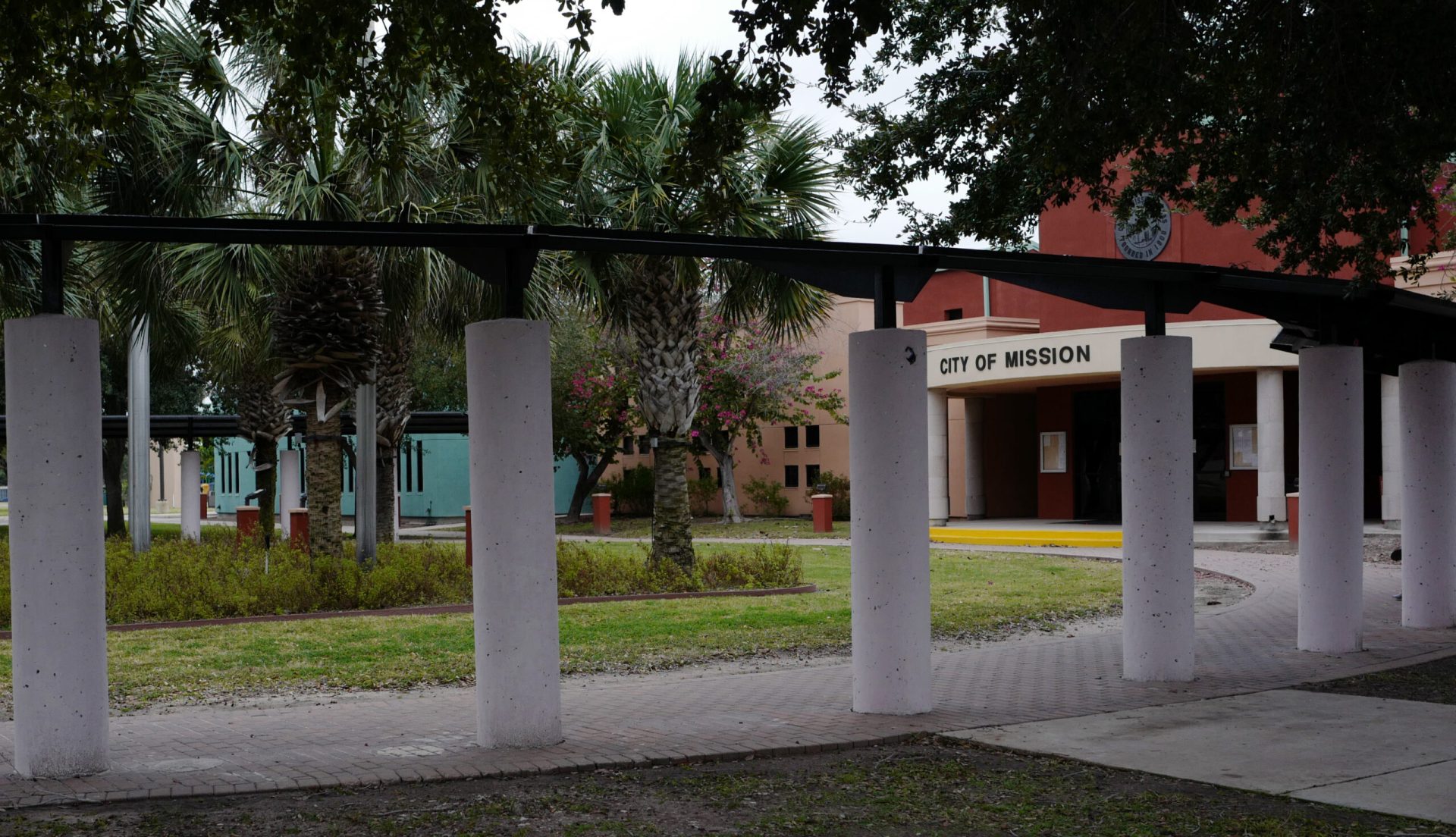|
Only have a minute? Listen instead
Getting your Trinity Audio player ready...
|

MISSION — Eight months after financial questions led to a substantial shakeup within Mission City Hall, the city’s outlook looks better, but is still quite a ways from perfect.
In the coming fiscal year, Mission will undergo a hiring freeze, a limited number of layoffs, no pay raises, and other austerity measures meant to keep the city running “a little bit leaner for a few years,” according to City Manager Mike Perez.
When Perez walked into city hall five months ago, he knew he had a large task ahead of him.
Years of financial mismanagement had culminated in a liquidity crisis that threatened Mission’s ability to make payroll last fall. Then, an issue over sales tax revenues meant for the city’s economic arm evoked further questions over the state of Mission’s finances.
The questions ultimately led to the departure of the former city manager and Perez’s hasty, but deliberate, hiring to fix things.
Speaking with The Monitor this week, Perez described those first days as “bad.”
“The first day I walked in, the first week, we had our financial adviser and he says, ‘You’re in bad shape. You need to cut 35% of your employees … if not, you’re gonna be $5 million in the red,’” Perez recalled.
It’s not the first time Perez has been called in to fix things in a city that has lost its way.
In recent years, he’s become perhaps best known for cleaning up the city of Weslaco, which had been left reeling after a multimillion dollar bribery scheme carried out by some of its elected officials.
It would be five years from the time then-Weslaco Mayor David Suarez brought Perez aboard in 2014 before federal prosecutors would announce public corruption charges against a half dozen Weslaco leaders.
In the interim, Perez managed to get Weslaco back on track even as some of the very same officials who would go on to plead guilty to financial felonies sat on the dais there.
Perez righted that ship by taking a careful and conservative look into the future.
It’s a modus operandi he immediately turned to this spring, when Mission’s third-party financial advisers were spelling doom and gloom.
“I said you gotta give me some time and let me look at it,” Perez said he told them.
He needed time to look at the books, to separate the wheat from the chaff, and to begin game planning a five-year outlook.
Now it’s fiscal budget season, when local governments across Texas begin figuring out the next 12 months of their finances.
As part of that process, Perez has put together one of his five-year plans, which he hopes to use as a guide to “build our fund balance up,” Perez said.
But getting the city back on track won’t come without some sacrifice.

FREEZES AND LAYOFFS
Already, Perez has halted several projects that were in the works. He’s also implemented a hiring freeze for some 107 positions that are currently vacant.
But even with that fat trimmed, Mission is looking at layoffs — something Perez said he’s loath to do.
“I’m looking at a reduction in workforce in both laborers and exempt employees — somewhere around 25 people, 25 positions that we’re eliminating just so that we can kind of get back on our feet,” Perez said.
In all, Perez will cut about 14% of the city’s workforce of 750 — far less than the 35% Mission’s financial advisers were predicting in March.
Those layoffs extend into Perez’s own office, where already he’s informed Deputy City Manager David Flores “he won’t have a job after Sept. 30.”
Only Mission’s public safety departments will be spared, such as the Mission Fire Department, where two positions will be opened to help deal with the added demands of the city’s EMS service.
But those two firefighter/paramedics are just one-third of what the department was hoping for. The city simply can’t afford the nearly half million dollars it would take to bring on seven new personnel at once, Perez said.
And though he admits the police department, with its dozen vacant positions, needs more sworn officers, they, too, may have to do more with less.
“The police, they’re not totally out of the woods yet on feeling the sharp cut of the knife,” Perez said.
Nor will city employees receive a pay raise this year, not even a cost of living adjustment.
MORE SPENDING CUTS
Perez is also asking each department to cut spending.
The city’s golf course, for example, which runs at a loss, got an infusion of just over $800,000 of working capital in this current fiscal year. But Perez is slashing that by half in the coming fiscal year, which begins Oct. 1.
Bit by bit, the austerity measures will put Mission on track to rebuild its cash reserves back to where they need to be, Perez’s five-year plan shows.
Right now, the city has less than 30 days’ worth of operating costs saved in its reserve, or rainy day fund, Perez said.
Industry standard is to keep at least three months’ worth of cash in savings. Many Rio Grande Valley cities try to save more than that, such as McAllen, which has more than seven months’ worth of operating costs tucked away.
Perez is working to bring Mission’s reserves up to $5-6 million.

SOURCE OF THE PROBLEMS
But how, exactly, did Mission get itself into such dire financial straits?
When asked, Perez spoke of a culture of complacency that had developed over many years — far before his predecessor, or the current Mission City Council.
“We just weren’t doing a very good job,” Perez said, taking ownership of actions that predate him.
But, unlike other cities where public corruption has led to financial crises, Perez doesn’t believe Mission has been a victim of any malicious malfeasance.
Instead, the city manager referred to the situation as “a perfect storm” that combined improper training, complacency bred from comfort, and the loss of crucial staffers with institutional knowledge as the driving force behind Mission’s financial predicament.
Part of his job over the last five months has been to instill “some real basic principles” to rectify that, Perez said.
For instance, Mission had been failing to reconcile its bank balances in a timely fashion.
Staff were also embarking on projects that had not been budgeted for — nor expressly approved by the city council — beforehand.
The culture had become such that if the city council expressed interest in a project, staff would move to “get it done” without going through the process of identifying funds to pay for it or getting the council’s formal approval.
Perez asked staffers if they’d similarly jump off a cliff just because the council talked about cliffs.
“It appears sometimes we didn’t want to tell them (the council) the truth. I mean, that’s what they pay us (for), to tell them the truth,” Perez said.
“To some, probably, degree for the last 20-plus years, they’ve (city staff) gotten conditioned not to say that,” he added.
Additionally, Mission had been pooling money from various funds — such as revenues from the utility department and federal grants — into one bank account.
The city had also been writing checks for large scale infrastructure projects — things that take much longer than one fiscal year to complete — from that same pooled account.
Further, Mission has a unique way of classifying its cash.
Whereas most cities divide things up into two categories, “assigned” and “unassigned” fund balances, Mission uses three categories: “uncommitted, committed and assigned,” Perez said.
All those variables together made it almost impossible to keep track of what was going where, but especially Mission’s way of categorizing its fund balance.
Currently, Mission’s books appear to show the city has a fund balance — or cash on hand — of just over $4 million.
But Perez said he doesn’t have faith in that number because he’s unsure how much of that cash has already been allocated for a particular use and just hasn’t been withdrawn yet.
“I don’t know if that’s a real number,” Perez said.
It’s something he’s asked the city’s auditors to pull “apart and figure out what it is” as they work to complete their audit of Fiscal Year 2022-23 — something they’ve been working on for eight months.
But that answer won’t come in time for the city’s budget deadline in late-September.
Another practice Perez has put a stop to is the transfer of money between funds.
For years, the city had practiced a sort of “robbing Peter to pay Paul” method of taking money from one fund and transferring it to an entirely different department. It occurred due in large part to an incorrect interpretation of the finance director’s job duties.
Transfers within a department are allowed — such as reallocating money meant for buying office furniture for the police department to instead buy police radios.
What isn’t allowed is moving that money from the police department to the fire department — at least not without the city council’s blessing.
That practice cost Angie Vela, the city’s finance director, her job earlier this year, Perez said.
He has since brought aboard a familiar face — Vidal Roman — who served as his finance director in Weslaco, to replace her.

FOSTERING ACCOUNTABILITY
But Perez isn’t about fall guys, he’s about accountability and “the buck stops here.”
“When you have anything that happens major in a city, the buck always stops in the city manager’s office and whatever department head” was in charge, Perez said.
As head of the city’s finances, their shortcomings were Vela’s responsibility.
Perez doesn’t exempt himself from that level of scrutiny. If an employee finds Perez doing something wrong, he wants them to report it — even if that means informing federal law enforcement about it.
Though times may currently be tough in the “home of the grapefruit,” Perez wants the public to know that it’s not all negative.
Mission’s utility departments are profitable and infusing cash into the city’s general fund.
And though Mission’s tax rate is lower than comparable cities like Edinburg and Pharr — and without the advantages of revenue generators like a landfill or international bridge — Mission is nonetheless close to getting back to where it needs to be.
Mission won’t see any profits from the Anzalduas International Bridge until it repays some $8 million it still owes to the cities of McAllen and Hidalgo for its construction.
“It’s much, much better,” Perez said of the current state of the city compared to five months ago.
Perez also lauded the city’s workforce, saying city administrators could learn a thing or two from their laborers.
“I will tell you that the service that the city employees deliver — I’m talking about outside city hall, the police, the fire, the streets, the drainage, the water and sewer people, and the garbage — they do a great job,” Perez said.
“I think we at city hall need to work toward that same type of excellence,” he said.



